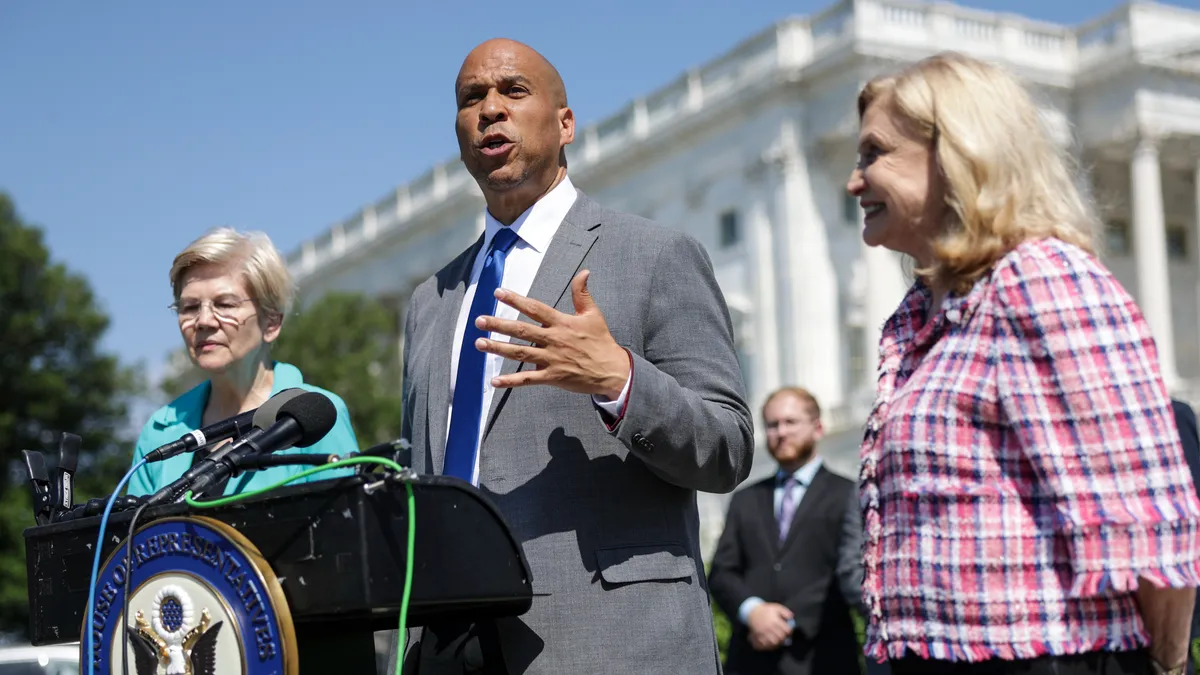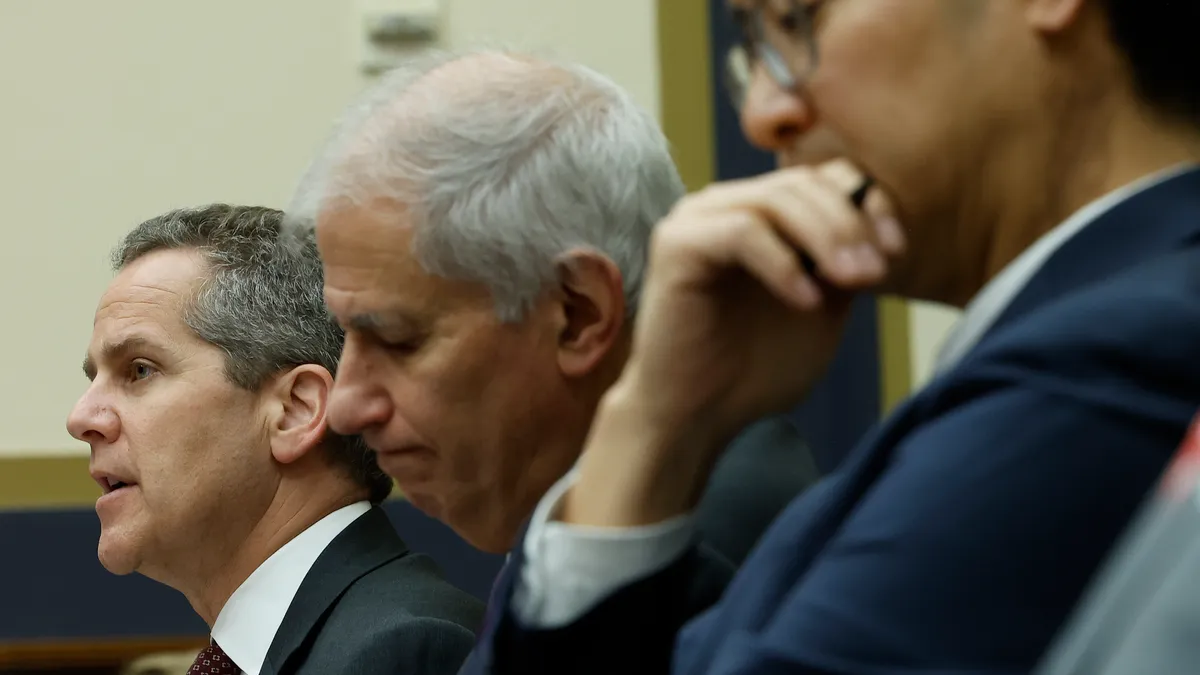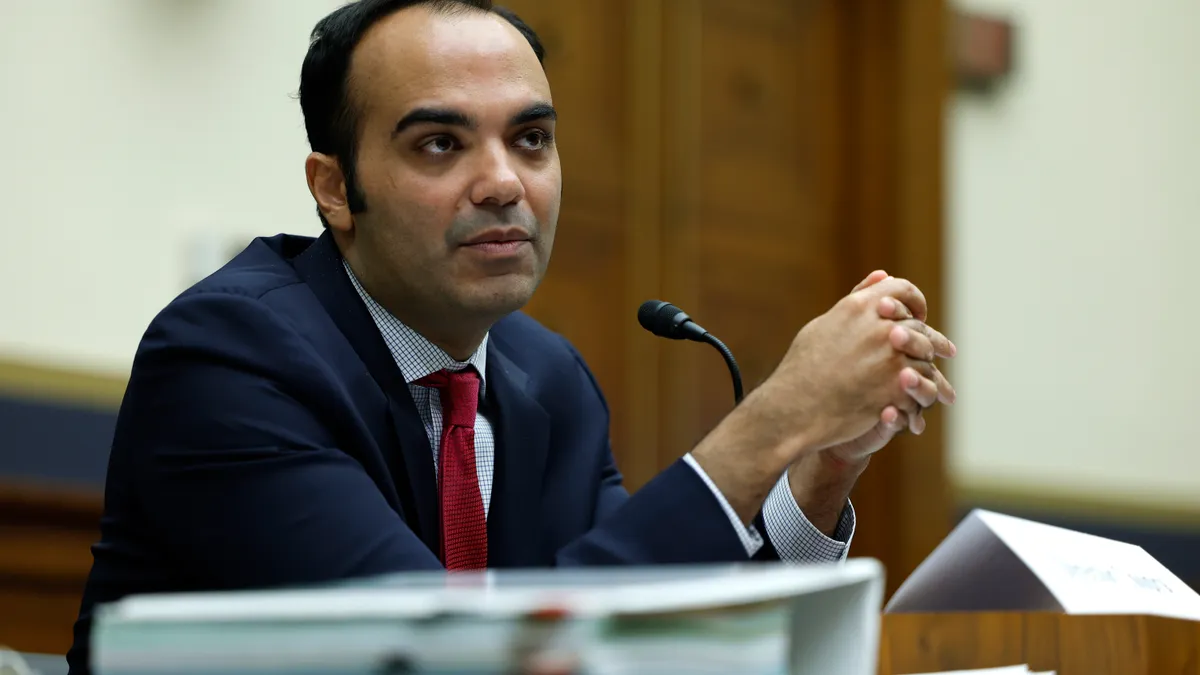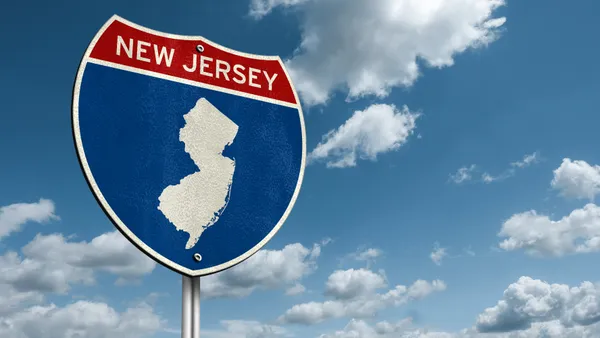Dive Brief:
- Democratic lawmakers are renewing their efforts to pass legislation that they say would rein in overdraft practices at U.S. banks.
- During a press conference Tuesday, Rep. Carolyn Maloney, D-NY, and Sens. Cory Booker, D-NJ, and Elizabeth Warren, D-MA, urged their fellow lawmakers to support a pair of bills that would place limits on the fees banks charge customers who overdraw their accounts.
- The push comes as the New York Department of Financial Services (NYDFS) on Tuesday issued guidance for banks to implement transparent overdraft policies and to eliminate “onerous fees.”
Dive Insight:
The Overdraft Protection Act, which Maloney introduced a little over a year ago, was set aside from a House Financial Services Committee markup hearing in late June, according to American Banker.
Maloney on Tuesday said she expects the bill will be taken up in a House Financial Services Committee markup later this month, the publication reported. She has introduced the bill in every Congress since 2009, but has yet to see it pass.
The pandemic has highlighted the need for more oversight of bank overdraft practices, she said.
“[D]uring the COVID-19 pandemic, we saw how financially strapped people were and how much happened in fees,” Maloney told Banking Dive last year.
On Tuesday, Maloney said her bill is also an answer to rising prices.
“This is a way to combat [inflation] and keep dollars in the pockets of consumers,” she said.
Maloney’s bill would prevent banks from charging a customer more than one overdraft fee in any calendar month, and would limit to six the number of overdraft fees a bank can charge a customer per year.
Warren and Booker on Tuesday called attention to the Senate’s own piece of overdraft reform legislation, the Stop Overdraft Profiteering Act.
“Billions of dollars are being made off of the backs of low-income families who are struggling to make it,” Booker said. “We now have to change this. We have work to do. The common-sense practices we are talking about is all about fairness. We know that the big banks have to be held accountable for predatory practices that they have gotten away with for far too long.”
Warren expressed confidence in the legislation’s passage, calling the bill a “hard bill to vote against.”
“If we can actually get this thing on the floor, who wants to be the Republican who says, ‘It’s OK for giant banks to continue to squeeze hard-working families’?”
At the state level
Meanwhile, the NYDFS on Tuesday said it is conducting a broad review of the overdraft practices of New York-chartered institutions, adding it has identified “several unfair or deceptive acts or practices.”
In some cases, banks that charge a fee for overdraft protection are charging customers twice when a customer’s transfer amount from one account is insufficient to prevent the actual overdraft, the regulator said.
“The practice of charging a consumer both an overdraft protection fee and a fee for the overdraft that the ‘protection’ failed to prevent (a ‘Double Fee’) constitutes an unfair practice,” NYDFS Superintendent Adrienne Harris said in a statement.
Policy shifts
Amid calls from lawmakers and consumer rights groups to revamp overdraft practices, some banks have changed their policies regarding the fees, reduced the amount they charge, or eliminated the fees altogether.
Last year, regional lenders such as PNC, Huntington Bank, and Frost Bank implemented overdraft grace periods, low-cash alerts and access to emergency lines of credit to help customers better avoid the fees.
Citi in February became the largest U.S. bank to eliminate overdraft fees altogether, joining Ally and Capital One, which jettisoned the charges last year.
Maloney acknowledged the recent changes some lenders have adopted, but said legislation is still needed.
“I would like to see more banks follow the steps of Capital One and Ally and of Citibank and voluntarily do it. But one of the things with voluntarily doing something [is] they can just as easily say we're not going to do it,” Maloney said. “I think it's very important to have the reality of a law behind this.”
As banks face increasing pressure to overhaul their overdraft policies, bank trade groups argue that eliminating the ability to overdraw an account could come at a cost for some cash-strapped consumers who rely on the service.
“With nearly half of Americans unable to meet a $400 emergency expense, there are times when consumers need access to short-term liquidity — or an emergency safety net — which is why well-regulated banks offer overdraft options,” David Pommerehn, senior vice president and general counsel at the Consumer Bankers Association (CBA), told Banking Dive last year.












